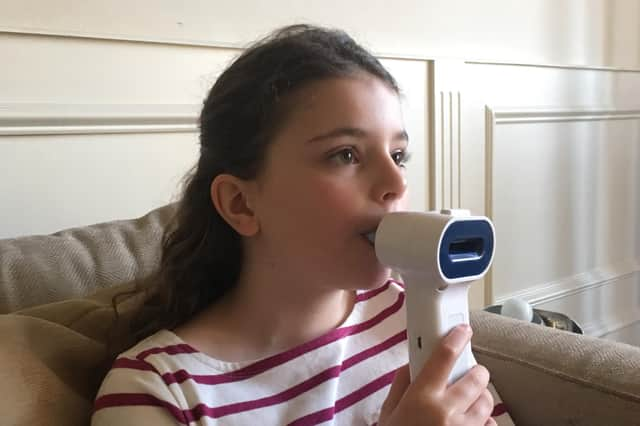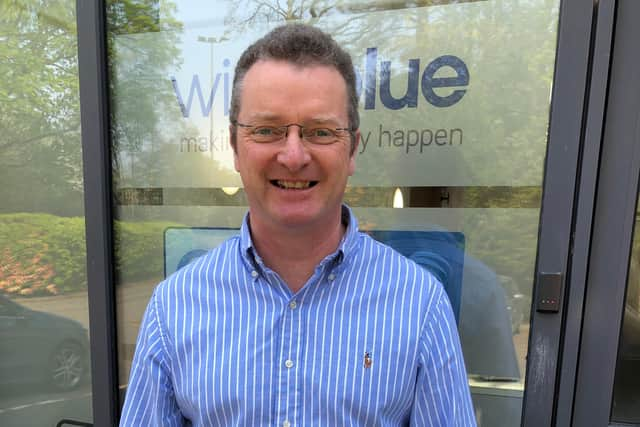Glasgow's Wideblue accelerating production of new device to help tackle Covid-19


It is hoped the CE-marked N-Tidal device will start trials in NHS and US hospitals in two or three weeks, opening the door for a rollout across the UK and potentially globally.
The product, developed for Wideblue client Cambridge Respiratory Innovations (CRI), is described as a simple-to-use, fully automated, small battery-powered personal capnometer used to measure CO2 in exhaled breath during normal relaxed breathing. The changes in CO2 concentration as a patient breathes in and out through the device are measured and can be used to assess the health of a patient’s lungs.
Advertisement
Hide AdAdvertisement
Hide Ad“Amid a shortage of ventilators, the device could enable clinicians to prioritise their use based on firm data,” said Wideblue, adding the device may also be useful to track progress of patients as they recover after ventilator use.


“Normally, a device called a spirometer is used to assess lung function, but this requires the patient to blow long and hard into a tube; Covid-19 patients do not have the energy to do this. Moreover, blowing hard into the spirometer can disperse coronavirus particles and create an aerosol of the virus the air. The N-Tidal device can hopefully be used to assess patients’ lungs without generating dangerous aerosols,” the firm also said.
MD Russell Overend said: “Wideblue has made 200 devices already and has a purchase order for another 1,000 units, which will be manufactured over the next few weeks. These devices were destined for clinical trials with [chronic obstructive pulmonary disease] and asthma patients but these devices are now being reconfigured and reallocated to Covid-19 patients.
“We are very hopeful these N-Tidal devices can be deployed in hospitals within the next couple of weeks.
“Wideblue are gearing up to rapidly increase production of this new N-Tidal device, the replaceable breath tubes and the mouthpieces. It is quite an exciting time in the development of this new product and one we are proud to be manufacturing and doing our bit in the fight against coronavirus”
A message from the Editor:
Thank you for reading this story on our website. While I have your attention, I also have an important request to make of you.With the coronavirus lockdown having a major impact on many of our advertisers - and consequently the revenue we receive - we are more reliant than ever on you taking out a digital subscription.Subscribe to scotsman.com and enjoy unlimited access to Scottish news and information online and on our app. With a digital subscription, you can read more than five articles, see fewer ads, enjoy faster load times, and get access to exclusive newsletters and content. Visit www.scotsman.com/subscriptions now to sign up.
Our journalism costs money and we rely on advertising, print and digital revenues to help to support them. By supporting us, we are able to support you in providing trusted, fact-checked content for this website.
Joy Yates
Editorial Director
Comments
Want to join the conversation? Please or to comment on this article.